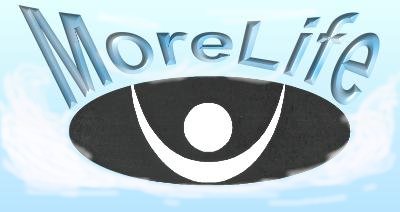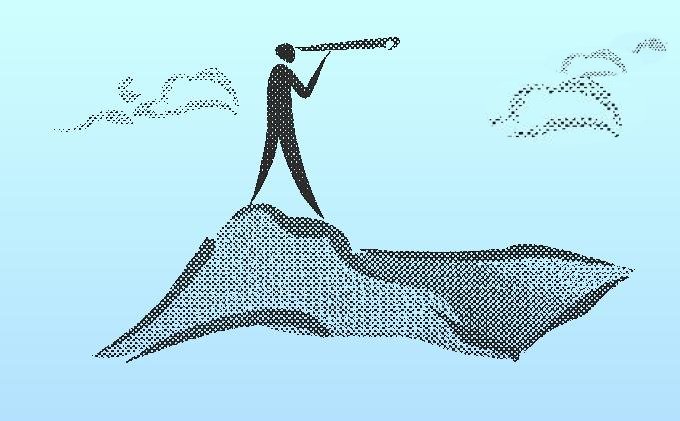

November 20, 2001. Big-bellied clouds like the cows of heaven going home, slowly, slowly. Ah, to be so deliciously slow, to savor space like that . . .
Slow is beautiful: this definitely holds for poetry. I tried to achieve the bliss of slowness through meditation, but the idea of a blank mind, emptied of all thought, had a limited appeal. It sounded restful, but also boring if sustained for longer than a few minutes. I wanted thoughts - slow, unexpected thoughts floating into my consciousness like heavenly cows, rich with the milk of inspiration.
The idea of slowing down my mind was perhaps the best idea I ever had. The discovery and practice of slowing down changed my life forever.
Poetry only deepened the discovery, which happened in the late sixties, when "speed reading" was born. Classes in speed reading were aggressively promoted to college students as the ticket to learning more within a shorter time. I never took the course, but had access to the materials through someone who did, so I decided to see how it worked. It didn't take long to note the strain and the lack of pleasure, as well as lower comprehension. The more I practiced, the more I realized that this method simply doesn't work.
"What we need is not speed reading, but very slow reading," I casually summarized my view of the speed reading craze. No one listened, since the idea sounded un-American, and I failed to propose a way to make money by teaching people to read very, very slowly. But the idea of slowness kept coming back to me - a fascinating phenomenon, since I was the driven type-A to the max, always speed-walking, speed-eating, speed-talking. Mentally, I operated mainly through impulse and intuitive leaping. When a student remarked that "speed" was the ultimate American drug, the work-ethic drug, I instantly understood.
It took me years of reading poetry, this emergence of a "slow self." Just to understand a poem at all, I had to slow down, and that was a revelation for a fast-lane, type-A person like me. For someone else it could be landscape design, or making table fountains, or maybe even cooking - anything can be done on the level of art. Or, more simply, anything can be done with love. Maybe it's mainly the question of loving something enough.
My deepening encounter with poetry crystallized the notion that slow is better and ultimately much more productive. For bliss, slow reading is my favorite mode. My motto is that anything truly worth reading is worth reading slowly. Think of it as the mental equivalent of SuperSlow exercise. If you really want to build muscles, make your movements as slow as possible. If you want to exercise really hard, do it so slowly it's practically a standstill. And that's the way you need to read Emily Dickinson.
Creative people are similar in one essential way: they love those hours of solitude and silence when they can go into something slowly, deeply . . . do I dare say superbly? Or maybe a more down-to-earth way of putting it would be that they know simplest of all secrets: if one is willing to put in enough time, almost anything is achievable, including the creation of beauty. Adrienne Rich says in a famous phrase, "A wild patience has taken me this far." - a passionate patience. I've discovered that enormous patience is the ultimate passion.
I suppose that this deeper personality emerged early in some people's lives. If so, I envy them having been sustained by the delight of slowness, already there during the difficult years of adolescence. I was a classic late bloomer, with only flashes of that other me coming through in my childhood and teens, dying against the pressure of other forces. In retrospect, I cherish those temporary entrances into slowness, as when I recited poetry in public - in school, I was always chosen to do that, perhaps because my voice automatically deepened and I was able to speak slowly and with passion, and had no idea what stage fright was - a tiny Edith Piaf in an auditorium filled with teachers, parents, and fellow-students, suddenly hushed when I began, when I stepped into my slow self.
Nobody coached me; it seemed my natural public-speaking style from the start. I first recited a poem at the age of four, at a preschool event; it's one of my mother's favorite memories, how strong I came on with my little "And I am a plum" quatrain, while many other little kids cried, peed in their pants, and simply couldn't perform at all. On stage, I had slowness and presence. Off stage, however, in my fast mode, I was nervous, unpopular, often miserable. The stress of changing countries made me even more nervous, lonely, and miserable. A friend once said, "I don't understand why you didn't commit suicide." I certainly thought about it often, sometimes daily. As soon as I had my first car, I felt, almost every day, a terrifying impulse to deliberately crash into a concrete wall - with another, very powerful part of me making me step on the brake as soon as the impulse even flickered.
Speaking of Piaf, I find a connection here with my sudden middle-aged love for Presley, especially his slow songs (actually almost exclusively his slow songs). For me he is the male Piaf, or at least comes sufficiently close to it. Growing up, I loved Piaf and Maria Callas - the power, the passion, going to the limit.
Poetry enforced slowness and provided an ecstatic element. It wasn't a question of finding inexhaustible challenge, and certainly not of trying to prove myself in the face of an early devastating verdict ("Perhaps the talent isn't there") from a formidable mother figure at UCLA. I did my best to keep running away from poetry, from the whole artistic side of myself. It happened anyway, this being seized by poetry as my ruling passion, both reading it and ultimately writing it.
It was perhaps due to the intense soul pleasure (mixed with agony, to be sure, as anyone who's experienced the creative process knows well) that I came to love that different and more powerful self that emerged from the creative engagement. What amazed me is that this self that had a calm heroic persistence, a surprising ability (for Type A, notoriously impatient) to work with small strokes and wait for years and years if need be for the right words. It astonished me, this capacity for superhuman-seeming patience in someone as impulsive as I used to be.
Once I knew the pleasure of slowness, I tried to taste it in other realms. I am still working on it, with deliberate exercises like slowly brushing my hair (I call this "five minutes of heaven"). But nothing works like poetry to sustain that mode - it happens automatically, without conscious trying. It's the most reliable entry I have, and the most powerful reinforcer. If I listen to music with total attention, then music can also transport me into that different realm, different self. A glorious sunset can do it too, or sublime scenery.
"Looking at images really slows you down," a Los Angeles sculptor told me. "I love best the moments when I move slowest. And I like to just contemplate the work." I introduced him to the term SuperSlow, and he now speaks of doing "SuperSlow Sculpture."
Rilke says something about it in an early poem that opens with the line "I love the dark hours of my being" ("Ich liebe meines Wesens Dunkelstunden" - the march of those heavy, primal syllables, those verbal cows of heaven, gives me a delightful shiver):
|
I love the dark hours of my being in which my senses drop into the deep. I have found in them, as in old letters, my daily life, that is already lived through [gelebt], and like legends become powerful and wide. Then I know there is room in me for a second huge and timeless life. |
Ah yes, the timelessness, the complete immersion. That's part of the ecstasy of entering the creative process deeply enough.
Maybe I am after all my father's daughter, I who have watched him stooped over a page, literally suspended over an equation for what seemed like forever, in a concentration so huge I still have not seen it in anyone else. Here is a fragment of a poem about it:
|
I remember how he paced the corridor at night, gouging the hard floor, fingers knotted above the elbows how he leaned forever over a notebook page slashed with zigzags of sigmas and the infinity sign thinking - thinking - so intensely the air around him seemed to harden until he had to carve it as I watched terrified, motionless from the ache of the same blood laboring in my veins. |